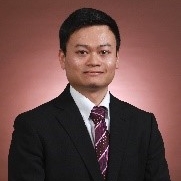2026 the 13th International Conference on Power and Energy Systems Engineering (CPESE)
Abstract: EVs play an important role in the decarbonization policies of many countries around the globe. This electrification of the transportation sector has a tight connection to the grid, via their bidirectional interactions. On the one hand, the charging of EVs required power supply from the grid. On the other hand, in presence of bidirectional charging technologies EVs can transfer energy back to the grid when needed, hence providing useful ancillary services. Additionally, the expansion and reliability of the charging network have been identified as an important item in the engagement of EV and infrastructure owners in the electrification programs. Hence, efficient coordinating mechanisms for the bidirectional interactions between EVs and the grid are required to ensure the benefits for all, while guaranteeing the stability and resiliency of the grid. This special session therefore aims to serve as a forum for exchanging the ideas and results of recent studies related to the field.
Rationale: Greenhouse gases (GHG) emissions are causing critical effects to the climate all over the world, for which many countries have set the target of carbon-neutrality at the middle of this century as a countermeasure. Among different sectors, power grid and transportation emit the largest amounts of GHG, thus decarbonizing these two sectors is emergent. To achieve that, transportation electrification could be a great solution. This has recently led to a boom of EVs worldwide. Deloitte predicts EVs to have approximately 30% of the global light-duty vehicle sales by 2030. In addition, a significant uptake of heavy-duty EVs in the fleet sector has started in the form of e-busses and e-trucks. Bloomberg reported in April 2022 that “The world’s EV fleet will soon surpass 20 million”. Such a huge number of EVs, on the other hand, pose a significant challenge for the grid to handle.
Countries have different plans to implement their EV charging network before the mass EV uptake. For example, the US announced the Bipartisan Infrastructure Law Investments to build out the first-ever national network of 500,000 electric vehicle chargers along America’s highways and in communities. In the residential area, a UK study shows that the upgrade costs about ₤65 billion required by 2050 to accommodate the electrification process, including EVs. In the case of fleet charging, both the capital and operational costs should be reduced for fleet owners. To this end, the EV charging facilities should be well integrated with PV generation and energy storage systems using smart algorithms. For a successful EV smart charging solution, several challenges should be addressed including the intermittence and rather unpredictable EV charging behaviour, different requirements of EV users and fleet, uncertainty in PV generation and local demand, and regulatory issues and business cases, etc. Efficient EV bidirectional charging mechanisms are therefore needed, and their mutual impacts with the grid should be carefully studied.
This session covers the following research area (but is not limited to them):
• EV bidirectional charging
• Vehicle-to-grid (V2G) technologies
• Fuel-cell vehicles (FCVs)
• Modelling of the charging demand
• EV charging in residential networks
• EV charging in microgrids and islanded networks
• Applications of AI and machine learning in EV charging
• Smart EV charging and scheduling
• Optimal location and sizing of charging systems
• EV charging at scale
• Reliability of the charging infrastructure
• Green EV charging
• Charging infrastructure for public transport
• Fleet charging management system
• Wireless EV charging
• Cybersecurity of EV charging network
• DC charging hubs
• Energy control and management of EVs’ batteries
 Assoc. Prof. Nguyen Dinh Hoa received his B.S. degree in Automatic Control from Hanoi University of Science and Technology in 2007, M.Eng degree in Electrical Engineering in 2009 from Chulalongkorn University, and PhD degree in Information Science and Technology from the University of Tokyo in 2014. Currently, he is an Associate Professor in the International Institute for Carbon-Neutral Energy Research (I2CNER) and Institute of Mathematics for Industry (IMI), Kyushu University, Japan. His research interests include control, optimization and artificial intelligence for complex systems including power and energy networks. Dr. Hoa received the Best Paper Awards–2nd Prize at the IEEE PES Generation, Transmission, and Distribution (IEEE PES GTD) Asia 2019, the Masao Horiba Awards in 2019, and several other awards. He is a Senior Member of IEEE.
Assoc. Prof. Nguyen Dinh Hoa received his B.S. degree in Automatic Control from Hanoi University of Science and Technology in 2007, M.Eng degree in Electrical Engineering in 2009 from Chulalongkorn University, and PhD degree in Information Science and Technology from the University of Tokyo in 2014. Currently, he is an Associate Professor in the International Institute for Carbon-Neutral Energy Research (I2CNER) and Institute of Mathematics for Industry (IMI), Kyushu University, Japan. His research interests include control, optimization and artificial intelligence for complex systems including power and energy networks. Dr. Hoa received the Best Paper Awards–2nd Prize at the IEEE PES Generation, Transmission, and Distribution (IEEE PES GTD) Asia 2019, the Masao Horiba Awards in 2019, and several other awards. He is a Senior Member of IEEE.
 Dr Ali Moradi Amani, has Bachelor's, Master and PhD degrees all in control engineering. He is now a senior research fellow at RMIT University, Australia. He is the facility manager of the RMIT’s EV living laboratory and has been deeply engaged with the transport electrification industry in Australia. His field of research includes control systems, complex networks, and smart EV charging. He received the RMIT Research Team Award and the STEM College Research Excellence Award in 2022. He is a Senior Member of IEEE.
Dr Ali Moradi Amani, has Bachelor's, Master and PhD degrees all in control engineering. He is now a senior research fellow at RMIT University, Australia. He is the facility manager of the RMIT’s EV living laboratory and has been deeply engaged with the transport electrification industry in Australia. His field of research includes control systems, complex networks, and smart EV charging. He received the RMIT Research Team Award and the STEM College Research Excellence Award in 2022. He is a Senior Member of IEEE.
 Assoc. Prof. Nguyen Duc Tuyen, is currently with Hanoi University of Science and Technology, Vietnam and an Adjunct Associate Professor at Shibaura Institute of Technology, Japan. He received his Master’s degree in 2009 and a PhD in 2012 at Shibaura Institute of Technology. Before working in Vietnam, he worked and taught at Chiba University, Tokyo University of Science and The National Institute of Industrial Science and Technology in Japan until 2018. In July 2018, Dr. Tuyen established 100RE Lab in HUST, Vietnam with nearly 40 members specializing in renewable energy research, smart grid and providing energy consulting services. Dr. Tuyen built a network of students doing
research and organizing annual Student Forum. Dr. Tuyen published more than 150 journal and conference papers. He is an active reviewer of IEEE, IET, MDPI, IEEJ, Springer, Elsevier, etc. reviewing hundreds of papers since 2009. His current research direction is on renewable energy, smart grid, energy storage, electric vehicle, and energy policy. Dr. Tuyen is a Clean EDGE Asia Fellow.
Assoc. Prof. Nguyen Duc Tuyen, is currently with Hanoi University of Science and Technology, Vietnam and an Adjunct Associate Professor at Shibaura Institute of Technology, Japan. He received his Master’s degree in 2009 and a PhD in 2012 at Shibaura Institute of Technology. Before working in Vietnam, he worked and taught at Chiba University, Tokyo University of Science and The National Institute of Industrial Science and Technology in Japan until 2018. In July 2018, Dr. Tuyen established 100RE Lab in HUST, Vietnam with nearly 40 members specializing in renewable energy research, smart grid and providing energy consulting services. Dr. Tuyen built a network of students doing
research and organizing annual Student Forum. Dr. Tuyen published more than 150 journal and conference papers. He is an active reviewer of IEEE, IET, MDPI, IEEJ, Springer, Elsevier, etc. reviewing hundreds of papers since 2009. His current research direction is on renewable energy, smart grid, energy storage, electric vehicle, and energy policy. Dr. Tuyen is a Clean EDGE Asia Fellow.
%20Kim_1.jpg) Prof. Rae-Young (Ryan) Kim, received his B.S. and M.S. degrees in Electrical Engineering from Hanyang University, Seoul, Korea, in 1997 and 1999, respectively. He earned his Ph.D. in Electrical Engineering from Virginia Polytechnic Institute and State University, Blacksburg, VA, USA, in 2009. From 1999 to 2004, he worked as a Senior Researcher at the Hyosung Heavy Industry R&D Center in Seoul, Korea. In 2009, he joined National Semiconductor Corporation, Santa Clara, CA, USA, as an Engineering Researcher, where he contributed to the development of a smart home energy management system. Since 2010, he has been with Hanyang University, where he is currently a Professor in the Department of Electrical and Biomedical Engineering. Additionally, he serves as the Deputy Director of the Hanyang Institute for Energy and the Environment, as well as the Director of the DC Grid Innovative Research Center. Prof. Kim’s research interests include high-power density converters, power semiconductor packaging and optimization, and next-generation smart grids. He was honored with the IEEE IAS 2007 First Prize Paper Award and the IEEE ACEPT 2018 Best Paper Award.
Prof. Rae-Young (Ryan) Kim, received his B.S. and M.S. degrees in Electrical Engineering from Hanyang University, Seoul, Korea, in 1997 and 1999, respectively. He earned his Ph.D. in Electrical Engineering from Virginia Polytechnic Institute and State University, Blacksburg, VA, USA, in 2009. From 1999 to 2004, he worked as a Senior Researcher at the Hyosung Heavy Industry R&D Center in Seoul, Korea. In 2009, he joined National Semiconductor Corporation, Santa Clara, CA, USA, as an Engineering Researcher, where he contributed to the development of a smart home energy management system. Since 2010, he has been with Hanyang University, where he is currently a Professor in the Department of Electrical and Biomedical Engineering. Additionally, he serves as the Deputy Director of the Hanyang Institute for Energy and the Environment, as well as the Director of the DC Grid Innovative Research Center. Prof. Kim’s research interests include high-power density converters, power semiconductor packaging and optimization, and next-generation smart grids. He was honored with the IEEE IAS 2007 First Prize Paper Award and the IEEE ACEPT 2018 Best Paper Award.
Please send your abstract/full paper to Easychair Submission System (.pdf only), Any questions, please feel free to contact with Conference Secretary , via cpesecontact@163.com.